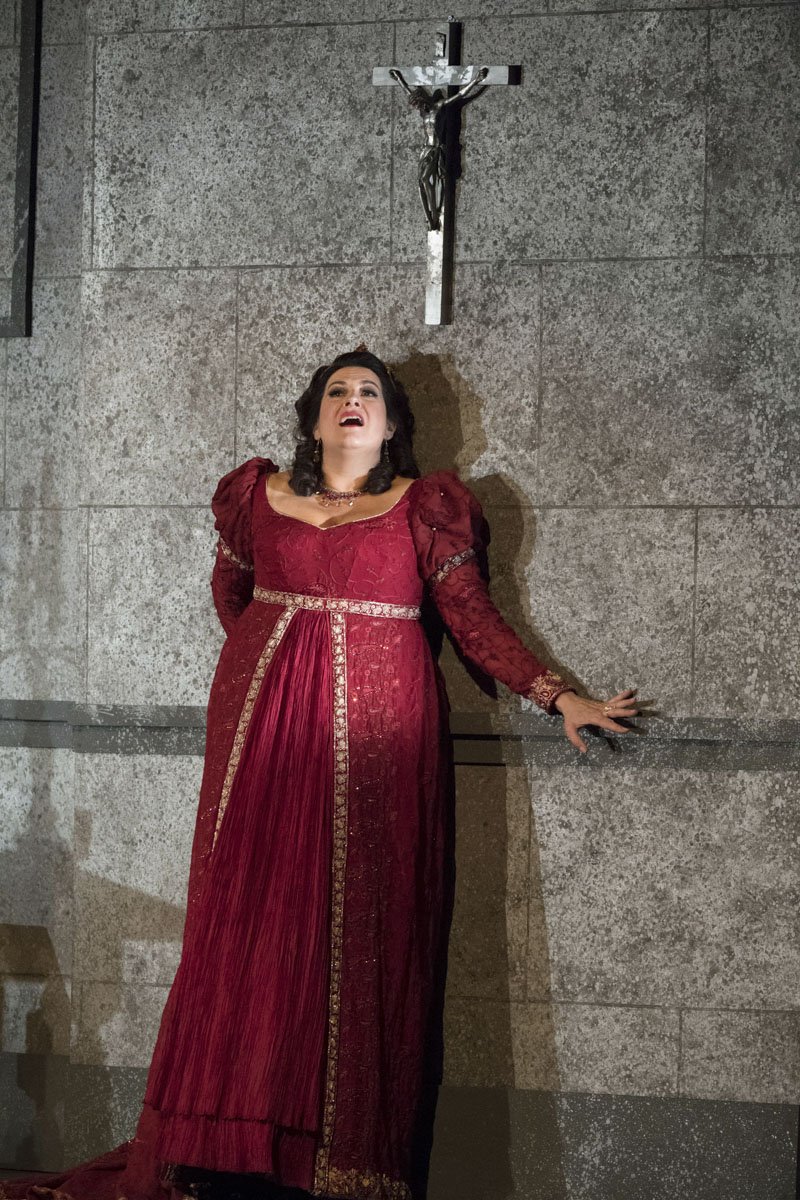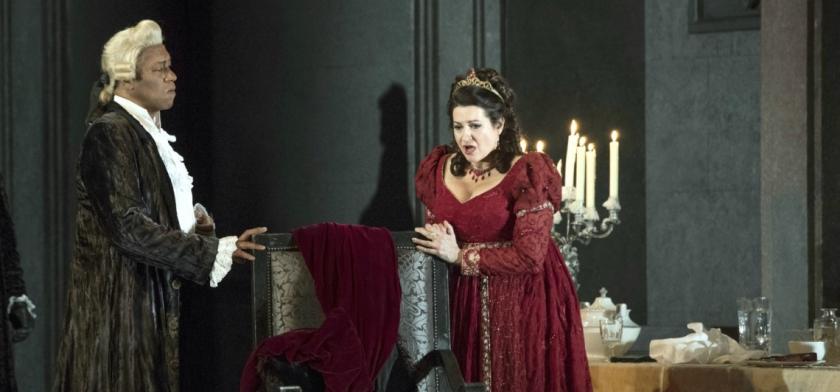Opera-lovers: if you’ve finally had enough of the wheelchairs and syringes, the fifties skirts and heels, the mobile phones and the white box sets, and the rest of the symbolic paraphernalia of the right-on modern opera production, pop along to the Wales Millennium Centre in Cardiff and catch up with Michael Blakemore’s quarter-century old staging of Puccini’s great warhorse.
Absurdly literal-minded? Maybe. But Tosca is a work that raises few if any issues. It’s a work of straight, powerful, well-told melodrama that belongs precisely where and when it is set, pace those updated productions that have to pretend that the battle of Marengo happened in 1960 or that Tosca might have been seduced by a police chief in a fawn raincoat. Puccini, musically and theatrically brilliant, intellectually uncomplicated, needs nothing beyond strong staging and high-class singing and playing, both of which it gets in this revival by Benjamin Davis, conducted by Carlo Rizzi.

All the same, the pasteboard aspect of verismo opera is impossible to avoid. Italian tenors are always like Italian tenors, unless they are not Italian and then possibly not so stylish. As it happens Hector Sandoval is Mexican, nevertheless a good Cavaradossi, a slightly stiff actor, inclined to face front at awkward moments, but vocally strong enough to rise above Puccini’s sometimes fierce orchestration, and with tender moments, in “O dolci mani” and “Amaro sol per te m’era morire,” where the composer at last allows him some extended lyricism.
Scarpia, likewise, is a one-dimensional figure, though the dimension is large: an Iago in authority and of a viciousness not confined to a single grudge. Mark S Doss portrays well both the ruthlessness and the elegance that if anything intensifies the cruelty, and he sings with a certain refined power, imposing himself on proceedings from the moment of his arrival at Sant’ Andrea - not, admittedly, a moment that Puccini is inclined to play down. Scarpia may be an ugly character, but his genre, unlike Iago’s, is civilised. Doss gets absolutely right, in voice and manner, the extremely sinister tone of this combination.
Claire Rutter’s Tosca is also thoroughly idiomatic: every inch the opera star playing the opera star, overdressed, over-coiffured, jealous as a suburban housewife and pious as a Tuscan peasant: above all, on top of Puccini’s sometimes exposed (the start of “Vissi d’arte”), sometimes nearly drowned-out writing for soprano. Here and there at the top the voice has a slight tendency to harden; but overall this is a strong, convincing, finely-sung portrait of a singer who perhaps never altogether abandons the stage.
It’s by no means a hack revival. The cast is excellent down the list: Donald Maxwell in a gently modified version of last week’s Melitone as the Sacristan, Michael Clifton-Thomas as a suitably cringing Spoletta, Daniel Grice an Angelotti whose voice, if not his appearance, proclaims the former Consul fallen on hard times. Marvellous playing, as ever, from the WNO orchestra under the dependable Rizzi, and a nice, bouncy chorus of children.















Add comment